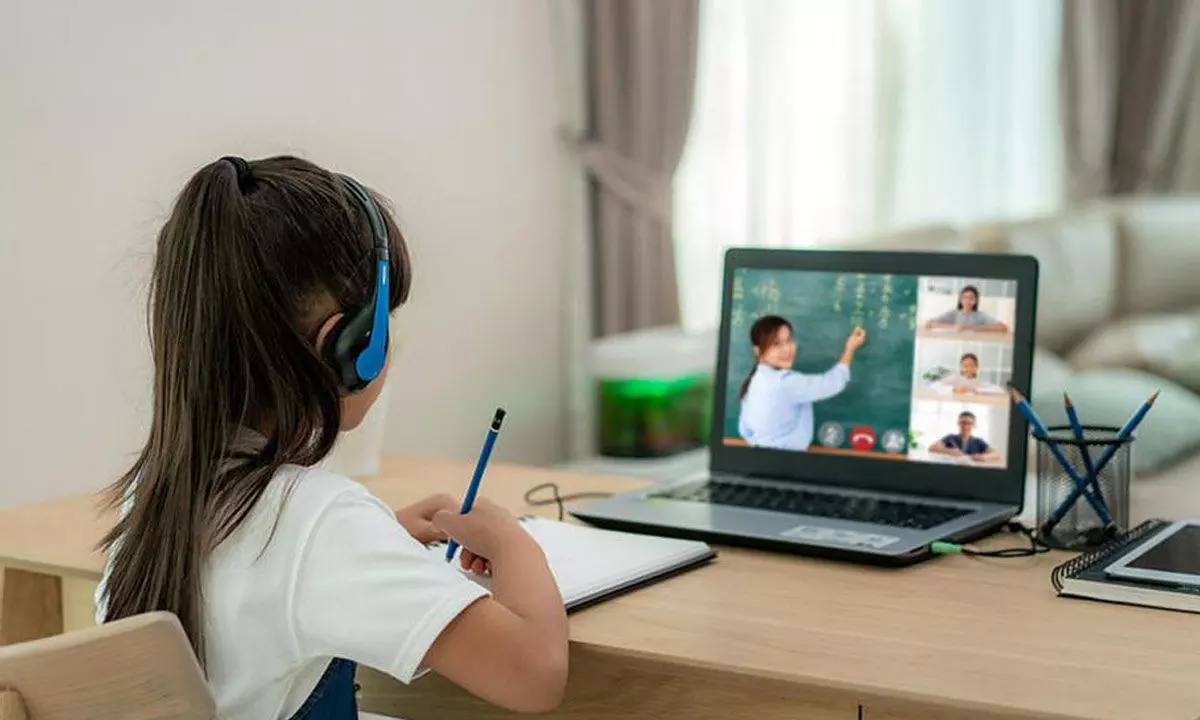Technology & personalised learning in education sector

Technology has crept in significantly in every part of our lives including education
Technology has crept in significantly in every part of our lives including education. With changing dynamics of tech-enabled education and learning, classrooms have shifted from teacher-centered to student-centered. The traditional mode of learning has been intertwined with digital learning resources, revolutionizing the way students engage with education.
The advent of AI and rise of remote/hybrid learning has remodeled the idea of a classroom to fit the evolving needs of a digital learner.
Today, it is not uncommon to see kindergarteners or primary students, adapting to digital learning apps with ease and finesse.
Technology has enabled personalizedlearning experiences, suiting the individual needs of learners. But it is important to take cognisance of the fact that personalized learning existed even before technology became common, but the difference is that today, technology has fueled personalized learning, which is now a mainstream discussion in the education sector. The article takes you through an overview of the role of technology in shaping personalized learning.
How is technology shaping personalized learning
With the rise of blended learning and the heightened availability of technology in schools and colleges, teachers have more opportunities than ever to help their students enhance their knowledge and skills, with a goal of vying for superior learning outcomes
The ease of access to information and resources
Technology has significantly solved one of the most daunting challenges of personalized learning experiences. It has made data easily accessible allowing learners to learn at their own pace with independence and clarity of thought.
It has made information and resources available like digital libraries, online platforms and open educational resources( OER) for students to conduct research and explore subjects over and above traditional textbooks.
Connecting classroom experiences to the real world
Technology has made it possible for educators to connect students’ real life experiences through augmented and virtual reality, breaking physical barriers and enriching learning. Today a geology teacher can take her students to a virtual tour of the Grand Canyon National Park, or a history teacher can virtually walk her students through the White House. Technology is also helping students to virtually attend lectures of speakers and subject experts through video-conferencing enabling them to expand their learning experiences with real-world perspectives.
Technology is supporting personal types of learning styles
No two students are alike in terms of learning, learning styles and the pace of comprehending a subject matter differ.
Technology is supporting educators to address different learning styles with diverse learning tools, and enabling them to connect and collaborate with students effectively. This is particularly true with non-English speaking students and students with learning disabilities.
Technology is elevating the learning process by adding a fun element in learning
Incorporating technology in classroom activities, is helping elevate the learning experience with the added element of fun. Educators are harnessing the power of technology by clubbing learning with elements like educational games and quizzes related to subject matters, online polls and surveys to facilitate classroom discussions, introducing basics of coding & programming through coding platforms and apps, and using AR & VR to tailor immersive and engaging learning experiences.
The thing about technology is how instructors intelligently imbibe technological tools with classroom and online learning, to enhance the transfer of knowledge and engage students with the process. However, it is important to ensure that students are guided efficiently, enabling them to search for information, evaluate it critically and use technology with responsibility. It is the onus of instructors and caretakers/parents to help students navigate the digital landscape smoothly, and develop the essential literacy skills to achieve that.
(The author is Educationist and Principal of Jasudben M L School and Bloomingdales Pre-Primary)










